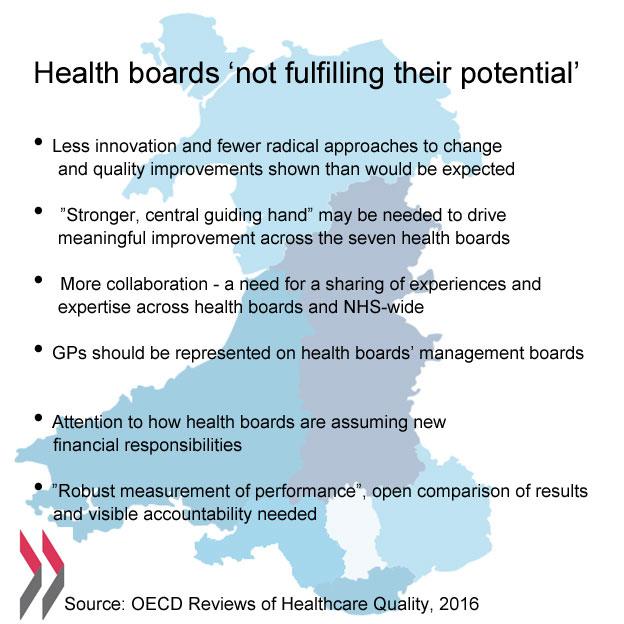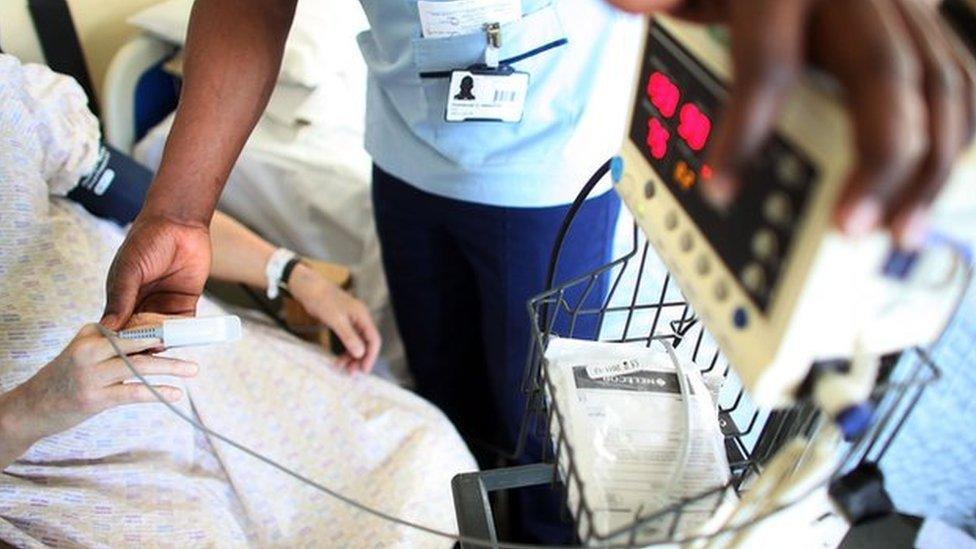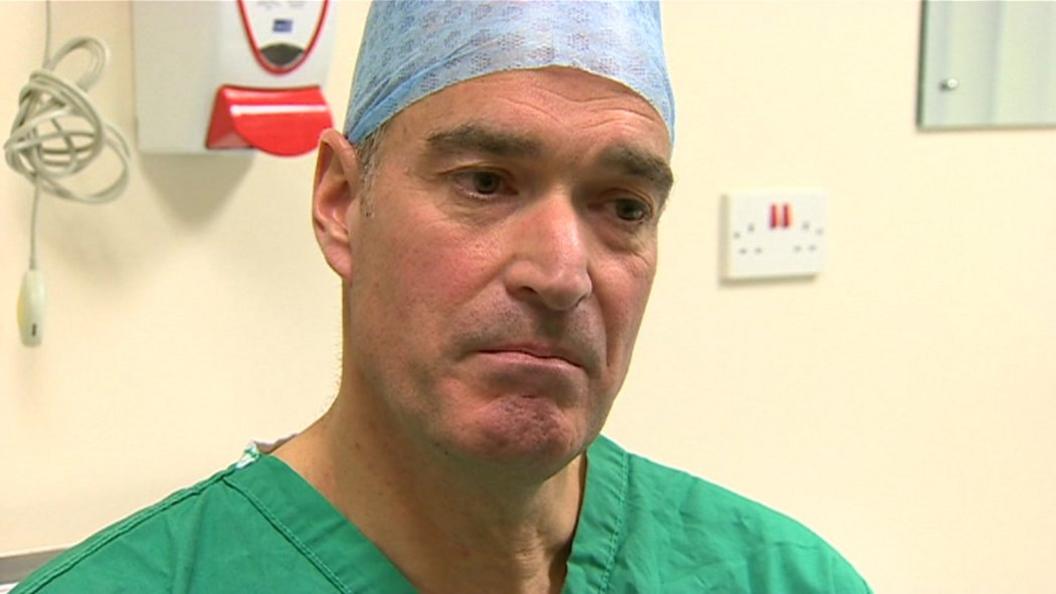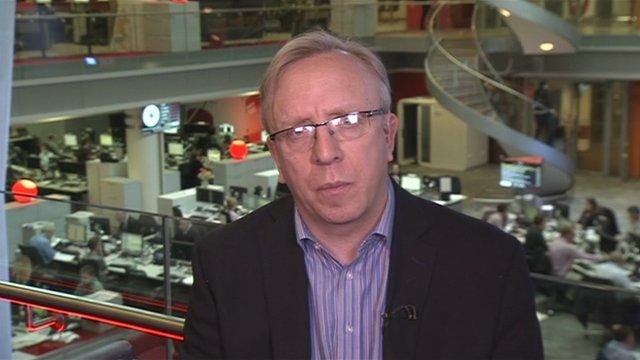NHS Wales 'no better or worse' than rest of UK, says OECD
- Published

The NHS in Wales appears to be performing no better or worse than the rest of the UK, a major international review has found.
The Organisation for Economic Cooperation and Development (OECD) looked into UK health service quality, as a political row raged over Tory claims of a "second class" NHS Wales.
First Minister Carwyn Jones said NHS staff in Wales deserved an apology.
However, the OECD suggests the system of health boards needs to improve.
Its review took place against a background of a bitter row between Mark Drakeford and England's Health Secretary Jeremy Hunt.
Mark Drakeford says the report 'puts the lie to bed' that Wales had a poorer NHS
Mr Hunt claimed patients in Wales received a "second class" health service and suggested the Welsh government was trying to pull out of the OECD study.
Mr Drakeford denied the accusation and now says any claims of one nation having a second-rate NHS compared to others "simply do not reflect the facts".
The OECD report, external concludes that there is "a clear and consistent commitment to quality of care" in all four of the UK's health systems.
But one senior official told BBC Wales that the quality across the UK is "not that good" and "fairly mediocre" with great policies not being translated into great practices.
The report said the reasons are "unclear" and "perhaps puzzling".



But in Wales in particular, one area suggested for improvement is how its seven health boards operate.
They were set up by the Welsh government in 2009 to run almost all aspects of local healthcare from GPs to hospitals.
The OECD says they have failed to live up to their potential and calls on ministers to take more direct control in driving change and quality improvements.
Mark Pearson, head of the OECD's health division, told BBC Wales, that comparisons were very difficult
Mark Pearson, head of the OECD's health division, told BBC Wales: "We're worried about the health boards. This was an idea that wasn't wrong in principle, it just hasn't worked well in Wales - the idea that the centre has a general view about what's happening but leaves it to the health boards to decide in each little authority."
"If you look at GP practices in Wales - they don't look much different to what they would have looked 20 years ago."
'Detracts'
Echoing recommendations for Scotland and Northern Ireland, the OECD says the Welsh government needs to use a "stronger central guiding hand" and "make more prescriptive demands" of health boards to drive meaningful improvement.
But it cautions against too much control, as shown in a "congested" system in England with too much central direction.
The OECD wants more innovative working in the NHS - such as specialists pooling their resources at Morriston Hospital in Swansea
As well as health board changes, the OECD suggests that Wales builds on its network of new primary care clusters - where GP surgeries bring other health and social services under one roof.
It recognises the challenges facing Wales' ageing population and thinks NHS Wales should consider shifting more funding out of hospitals to GPs and the community over the next five to 10 years - to ensure care follows the money.
Also it suggests looking at policy ideas from elsewhere in Europe, which include financial penalties on social care providers if hospital discharges of elderly patients are delayed.
Mr Drakeford said the report found quality at the heart of the NHS in Wales.
"The OECD's report finally puts to rest the claims that a particular heath service in one part of the UK is better than the others," he said.
"It lays bare the challenges all parts of the UK face from an aging population to the growth in chronic conditions and the impact of people's lifestyle choices."
- Published12 February 2016

- Published3 February 2016

- Published28 January 2016

- Published28 January 2016

- Published28 January 2016
